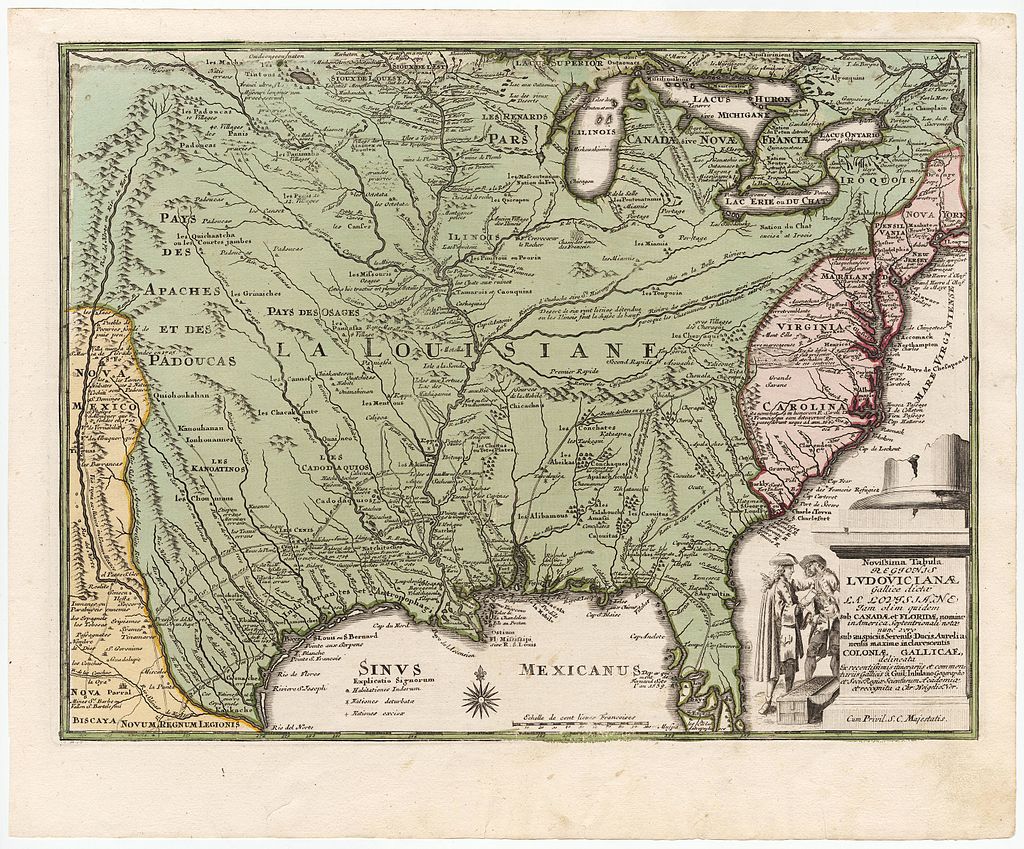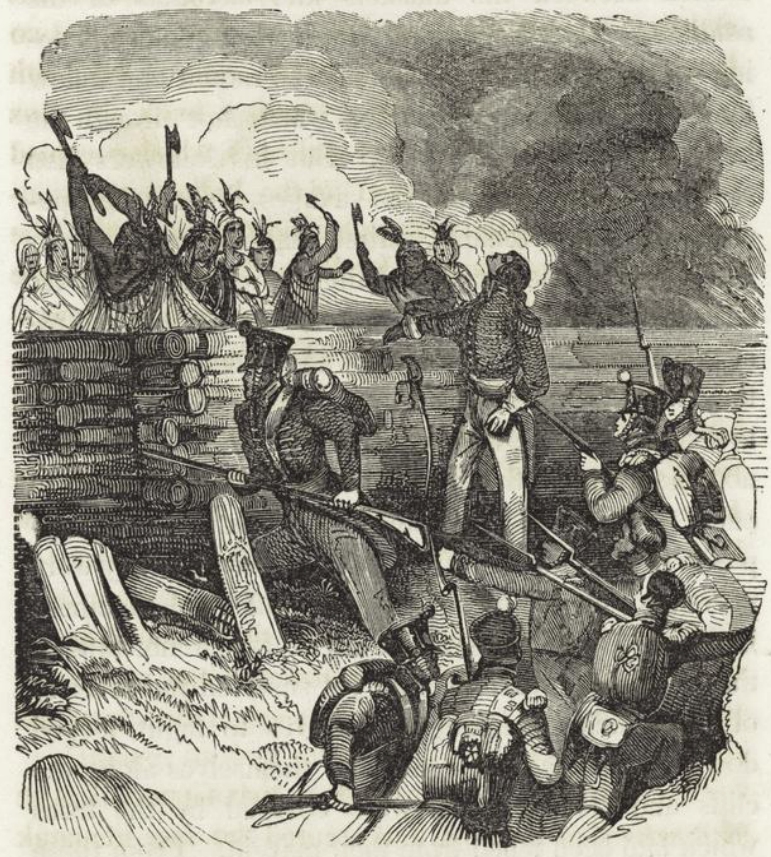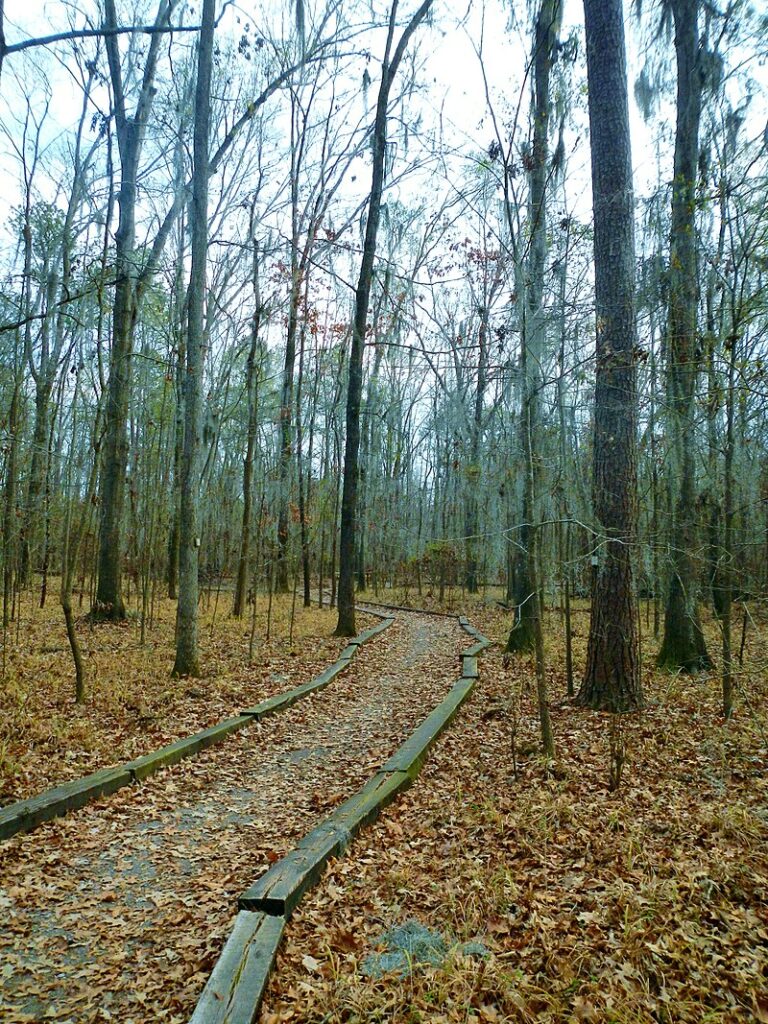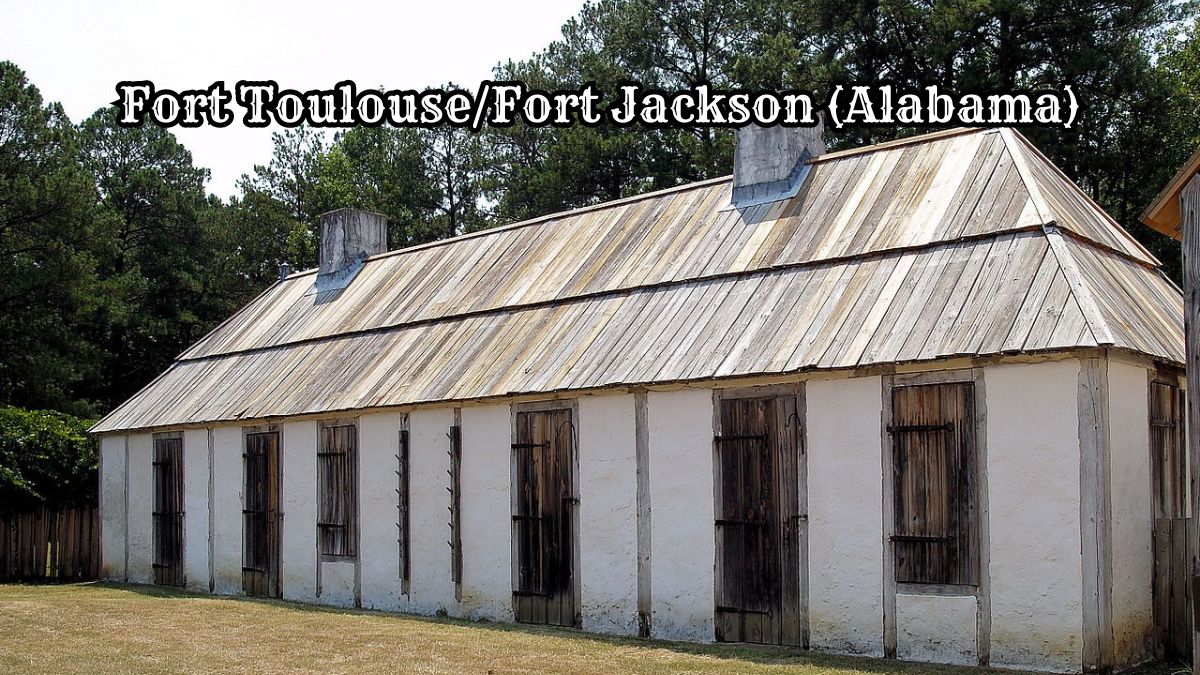Fort Toulouse in Alabama offers a fascinating glimpse into 18th-century history. It reflects the complex interactions between French colonists, Native American tribes, and early American settlers.
This article explores the fort’s pivotal role in colonial expansion, its strategic importance during military conflicts, and the rich cultural exchanges on its grounds.
Fort Toulouse and the subsequent Fort Jackson stand as vital links to the past, from its designation as a National Historic Landmark to its archaeological treasures.
Visitors can experience history exhibits, hike scenic trails, and participate in educational programs, making it an enriching destination for history enthusiasts and nature lovers.
Historic Fort Toulouse in Alabama
Fort Toulouse in Alabama played a crucial role in the regional dynamics of the 18th century. It impacted French colonial expansion, Native American interactions, military conflicts, and cultural exchanges.
Its historical significance is evident through archaeological discoveries, military engagements, and its subsequent designation as a National Historic Landmark.
French Colonial Era

Fort Toulouse was the easternmost outpost of the French colony of Louisiana. Established in 1717 by French soldiers, it was part of a strategic series of forts along the Mississippi River.
The fort aimed to strengthen French policy and regional presence, particularly against British rivalries. Its location near New Orleans was vital for controlling the fur trade and regional diplomacy.
Native American Heritage
The area around Fort Toulouse was rich in Native American history, particularly for the Creek Indians. The Creek villages in this region were part of the Creek Confederacy.
The Alibamu Indian village of Pakana was located nearby, highlighting the fort’s significance in Creek and Alibamu cultural landscapes.
Indian houses and large mounds, such as the Mississippian mound site, are key archaeological findings.
Military Engagements

Fort Toulouse witnessed numerous military engagements, including conflicts during the Creek War and the Battle of Horseshoe Bend.
General Andrew Jackson, the Tennessee militia, and U.S. Army regulars played critical roles in these battles.
The Treaty of Fort Jackson, signed after the Creek War, resulted in American forces taking control of the fort, renamed Fort Jackson.
Cultural Transformations
The fort experienced various cultural transformations due to interactions among French soldiers, Native Americans, and British traders. The Yamasee War and other conflicts brought diverse cultural exchanges.
The presence of an Indian encampment, the subsequent establishment of an American fort, and the arrival of American settlers marked significant shifts in the local cultural landscape.
Archaeological Insights
Archaeological collections from the Fort Toulouse site provide in-depth insights into its historical significance. Excavations have revealed artifacts from French, Native American, and later American periods.
The large mound and other findings have contributed greatly to understanding the daily lives and interactions of the fort’s inhabitants. These discoveries have also informed the reconstruction of Fort Toulouse.
Designation and Preservation
Fort Toulouse’s historical value led to its designation as a National Historic Landmark. Managed by the Alabama Historical Commission, the site is preserved as part of the Fort Toulouse – Fort Jackson Park.
This designation aims to educate the public and protect the old site of Fort Toulouse, ensuring its historical legacy remains intact for future generations.
Fort Jackson Park Features

Fort Toulouse offers visitors a diverse range of attractions and activities.
From its rich natural environment and extensive trail network to well-equipped campgrounds and event-hosting facilities, the park is a perfect destination for nature lovers, history buffs, and families.
Natural Environment
The park is nestled at the confluence of the Coosa, Tallapoosa, and Alabama rivers, creating a unique and vibrant ecosystem. Visitors can explore the lush landscapes and observe a variety of flora and fauna.
The area’s humid climate supports a rich diversity of plant life, including species documented by famed 18th-century botanist William Bartram.
Birdwatchers will also find the park a haven for numerous bird species. The natural beauty and its historical significance make it a fascinating spot to explore.
Trails and Outdoor Activities
Fort Toulouse features several trails, including the William Bartram Nature Trail, named after the naturalist William Bartram. These trails offer varying difficulty levels, making them suitable for casual and serious hikers.
The trails provide scenic views of the rivers and forests and opportunities to see local wildlife.
Outdoor activities such as fishing, canoeing, and picnicking are also popular, and amenities like picnic tables and designated fishing areas are readily available.
Campground and Facilities
The park boasts a 39-site campground that includes RV sites and tent-only areas. Each site has water hook-ups and a picnic table.
The centrally located bathhouse is open year-round, ensuring convenience for campers.
There is also a special group tent site for school children and scout groups. Whether staying for a night or an extended visit, the campground offers a comfortable and scenic experience.
Event Hosting
Fort Toulouse is well-known for hosting various events, including the annual Alabama Frontier Days. This event and other special events and history programs attract numerous visitors eager to learn about the area’s rich past.
The park’s facilities can accommodate a range of gatherings, from educational field trips to large community events. The park’s historical setting and modern amenities make it ideal for any event.
Explore More: Army Forts in Alabama
Education and Interpretation
Fort Toulouse in Alabama offers unique educational opportunities through engaging living history exhibits and structured educational programs. These initiatives provide a deeper historical perspective for visitors of all ages.
Living History Exhibits
Fort Toulouse brings history to life with living history exhibits that immerse visitors in the daily life of the past.
Reenactments include scenes from the Indian War encampment and the Fort Toulouse des Alibamons period, showcasing interactions between Native Americans and European settlers.
Costumed interpreters demonstrate traditional crafts and military drills, enhancing the experience.
Visitors can explore the site on the southern edge of the park where these activities are meticulously recreated. The attention to detail provides a vivid glimpse into historical events, making it a compelling visit.
Educational Programs
Jackson State Park offers a variety of educational programs designed for school groups and larger families.
Programs include guided tours, hands-on activities, and interactive workshops that cover archaeology, early American history, and native cultures.
Students learn through engaging content tailored to different age groups. Larger extended families can participate in special events that provide more in-depth experiences.
These programs are carefully crafted to ensure that participatory learning is both fun and informative for young minds.
Explore More: 19 Historic Forts in Alabama
Visitor Information
Fort Toulouse-Fort Jackson Park, located in Elmore County, offers a unique blend of history and nature. Visitors can explore both the reconstructed Fort Toulouse and the remains of Fort Jackson, gaining insights into different historical periods.
Location: The park is near the county seat of Wetumpka, providing easy access from various parts of Alabama.
Hours and Admission
- Park Hours:
- Monday – Saturday: 9 AM – 4 PM
- Sunday: 12 PM – 4 PM
- Admission Fees:
- Adults: $2
- Children (6-18): $1
- Children under 6: Free
Facilities
- Visitor Center: Offers exhibits, maps, and information.
- Picnic Areas: Available for families and groups.
- Restrooms: Located near the visitor center and picnic areas.
Activities
- Historic Tours: Guided tours provide detailed accounts of the site’s history.
- Hiking Trails: Various trails for different skill levels.
- Reenactments: Live demonstrations of 18th and 19th-century life.
Guidelines
- Pets: Allowed on a leash.
- Photography: Permitted throughout the park.
- Group Visits: Reservations recommended for groups over 20.
For more details, visit the official website or contact the park office directly.

Cory is a website owner and content creator who enjoys fishing, history, coin collecting, and sports, among other hobbies. He is a husband and father of four.
Romans 15:4 For whatever was written in former days was written for our instruction, that through endurance and through the encouragement of the Scriptures we might have hope.

